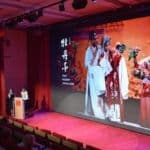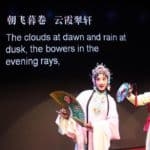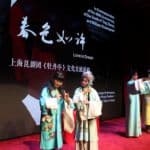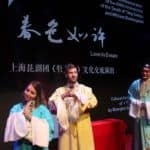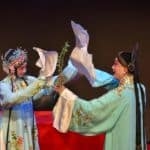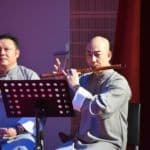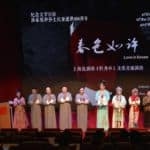The Shanghai Kunqu Opera Troupe pays homage to Tang Xianzu
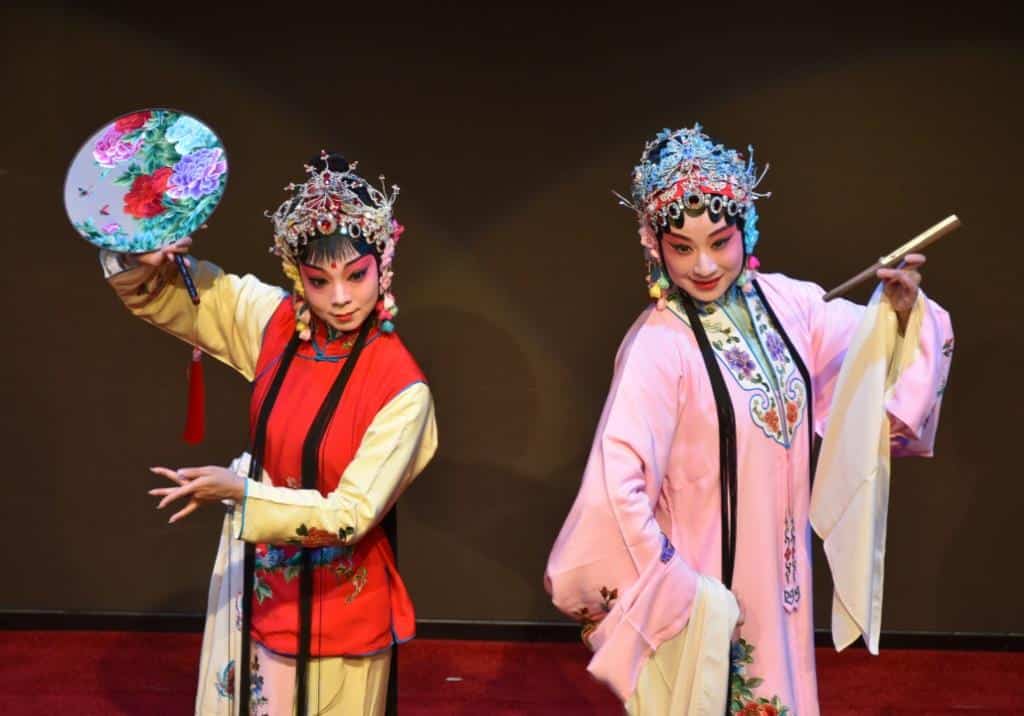
For three evenings in a row, visitors of the China Cultural Center let themselves be mesmerized by the exotic beauty of Kunqu opera. The colorful costumes, sophisticated makeup and enchanting music transported them across time and space, to a spring evening, in a Chinese flowery garden, lit only by moon glowing in the night sky…
And around a fictional pot of tea, rocked by the solitary lapping water of a nearby imaginary fish pond, everyone shared DU Liniang longing for love, everyone smiled at Chunxiang’s never-ending amazement at the wonders of the spring, everyone shivered of delight when finally the long-awaited LIU Mengmei entered the stage and met his sweetheart… everyone simply fell in love with The Peony Pavilion, most famous drama of literary master Tang Xianzu.
Mrs Yu who guided the audience throughout their time-travel experience, and explained that, so as to be as close as a setting in which Chinese scholars enjoyed such performance in their time, among friends, in the quietness of their private garden, the show was entirely executed without microphones or sound support systems for both the actors and the musicians.
Beside the embellished flute tunes and high-pitched singing style, another particular feature of Chinese opera is the very sparse use of props and decors, but what could seem, at first, as an hindrance to the appreciation of the play is actually compensated by very precise, refined and elegant gestures as well as by the actor’s highly eloquent facial expressions.
In this enchanting atmosphere, one hour flew by, and at the end of each performances, before the magic ended, volunteers from the audience were invited to join the stage, dress up and play themselves the encounter between DU liniang and LIU Mengmei with the help of the actors. The public, many of whom had never seen Kunqu before, were delighted by the show, some even came the three nights to admire the talented, and many times awarded, Shanghai Kunqu Opera Troupe.
Kunqu opera was proclaimed a Masterpiece of the Oral and Intangible Heritage of Humanity by Unesco in 2001.

